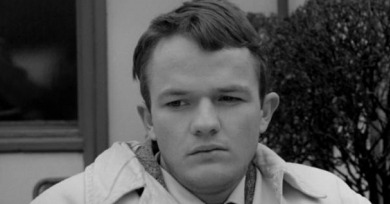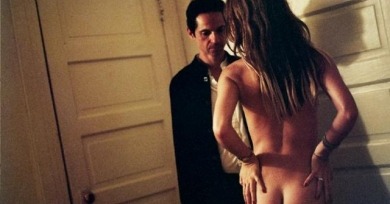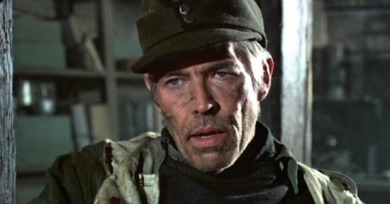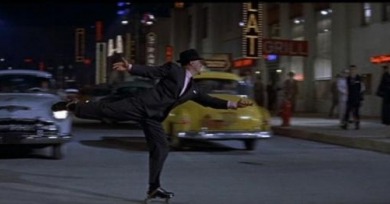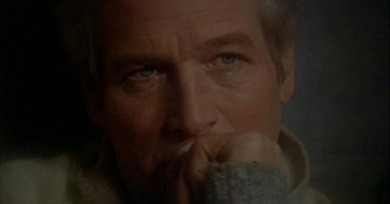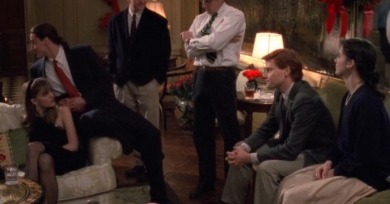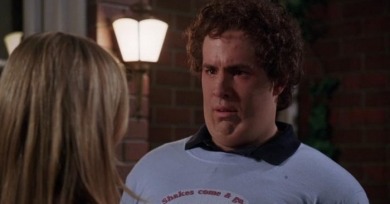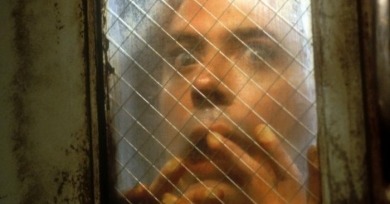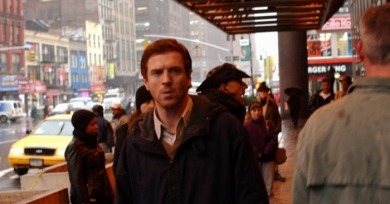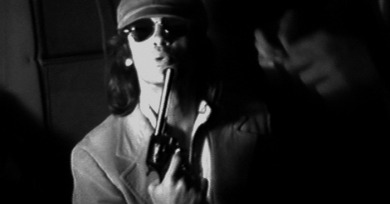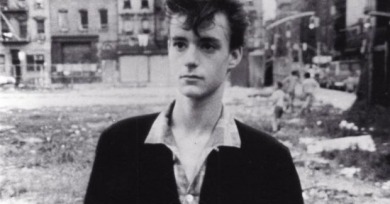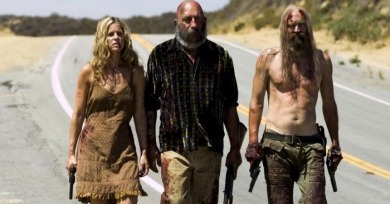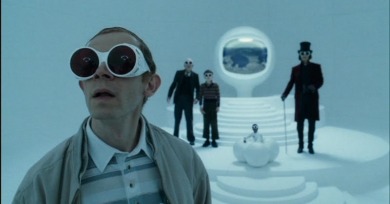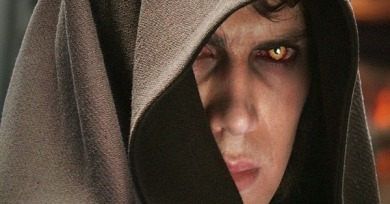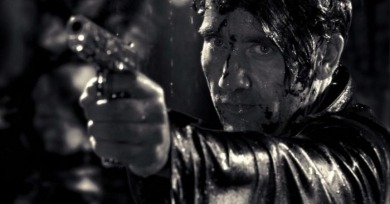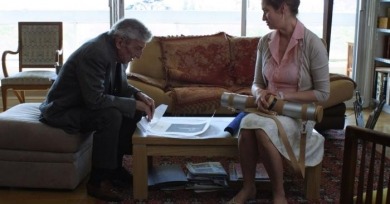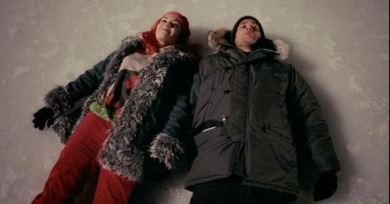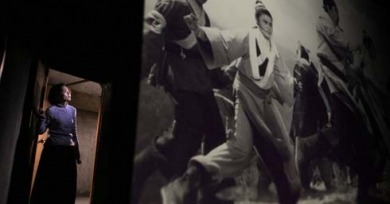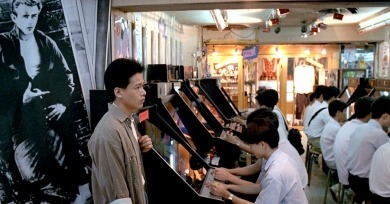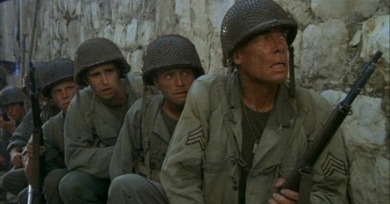Nick Pinkerton
Those specificities, bourgeois family and Catholic morality, are case appropriate to the movie’s provincial mid-Sixties Italian milieu, though it should be said in fairness that there’s no system of values or morality that the movie doesn’t affront.
You are what you fuck”—or how you fuck, at least—seems to be the basis of any contemporary exercise in analytical artistic truth seeking. Probably the closest equivalent to writer/ director/ star Caveh Zahedi’s fidgety new self-exposé comes from underground comix, that most purely onanistic of artistic subgenres.
What distinguishes Peckinpah’s “real” WWII story from his movies of peacetime warring? Only that diplomatically sanctioned combat is much, much bigger, louder, dirtier, bleaker, and blacker than anything his other films imagined.
There’s no sober realist tract squeezed between the film’s ten show-stopping numbers set in “New York City” aka Culver City, CA, but It’s Always Fair Weather is deprecatingly funny and downbeat, and has a pensive melancholia which, if not entirely adult, is on the way there.
What evidence exists of artistry comes through in its atmosphere. The film is shot, more-or-less throughout, with a lens that leaves the image foggy on all four sides, with only an oval in the middle of the frame in crisp focus.
“Almost everything Jane Austen wrote, looked at from today’s perspective, is absurd,” says young Tom Townsend (Edward Clements), paraphrasing the literary critic Lionel Trilling with the blithe book-closed certainty of an amateur intellectual.
Just Friends had the misfortune of ostensibly belonging to one of the more reviewer-reviled comic subgenres; lacking any sort of critical caché, its likes are usually thrown to the interns, written off in 48 states by some stooge on AP wire, or dealt “safe” pans by grandstanding writers.
In Dreams, re-watched, looked at any which way, remains a fundamentally miscalibrated movie of rather piquant badness, the work of a preternaturally talented hack, if such a thing can exist.
The director opts for claustrophobic closeness over panorama; the topography of New York and North Bergen, Jersey indistinguishably smutch together in this film’s drear world, forming one continuous catacomb of exposed beams and naked brick, service-entrances and public restrooms, bulletproof glass and wet underpasses.
What’s the real subject here? I’m not sure it’s art—some of Eggleston’s most famous photos are reproduced onscreen, but they look crass, bleary.
Jarmusch’s little-screened collegiate 77-minute debut feature, Permanent Vacation, is another movie wrapped up in cool, but the humor and circumspection marking those later films is absent.
When a friend recently noted that my taste in horror flicks tended toward the “grim and serious,” I had to balk—we’re talking about horror movies after all! But I may be in a minority by virtue of taking that grimness for granted.
Tim Burton is one of the better pop-circus ringleaders and more unremarkable artists that American movies have to offer; evidence of both tendencies is much available in his Charlie and the Chocolate Factory.
The Star Wars brand name fills the screen then recedes into the cosmos, trailed by that famous crawl of backstory, while John Williams’s familiar score oversees the proceedings with the pomp of a graduation recessional.
What’s left is just lowlife burlesque aimed squarely at folks who lap up real-life tough-guy ‘toons like Bukowski and bird-flicking, posterized Johnny Cash, a straight whiskey, no chaser hard-living fantasy for big kids who think 50 Cent’s too black.
Kings and Queen was one long, effervescent gush of cinema in a year when the medium dearly needed a shot of spirit; maybe that’s enough to account for the general outpouring of critical goodwill that greeted its arrival onscreen.
It’s worth noting that I only know one person who didn’t like Eternal Sunshine of the Spotless Mind.
What is it about the movies that make this medium so prone to hysterical paeans to itself? Just how often have lax critics dusted off that old standby, “a love letter to the movies,” in this century past? What face could launch so many professions of amour?
Tsai's films engage a whole mythology of distance and doldrums—one so inclined can extrapolate psychological echoes of Tennessee Williams, Dostoevsky, and Charles Schulz's Peanuts.
What is it that one remembers and loves about Sam Fuller's movies? Is it a worldview? Is it those craggy, boldface pronouncements on “the nature of war?”
